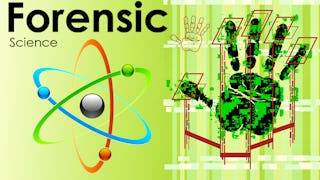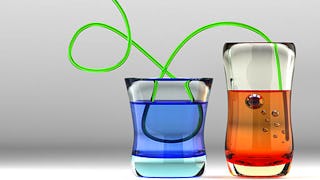Filter by
SubjectRequired
LanguageRequired
The language used throughout the course, in both instruction and assessments.
Learning ProductRequired
LevelRequired
DurationRequired
SkillsRequired
SubtitlesRequired
EducatorRequired
Explore the Medicinal Chemistry Course Catalog
 Status: Free Trial
Status: Free TrialSkills you'll gain: Pre-Clinical Development, Drug Interaction, Clinical Trials, Pharmacology, Drug Development, Pharmaceuticals, Patient Safety, Clinical Research, Competitive Intelligence, Safety Standards, Laboratory Testing, Biochemical Assays, Medication Administration, Pharmacotherapy, Pharmaceutical Terminology, Safety Assurance, Biotechnology, Biochemistry, Laboratory Research, Chemistry
 Status: Free Trial
Status: Free TrialNovartis
Skills you'll gain: Drug Interaction, Pharmacology, Pharmaceuticals, Pre-Clinical Development, Drug Development, Medication Administration, Pharmaceutical Terminology, Clinical Research, Laboratory Research
 Status: Preview
Status: PreviewDuke University
Skills you'll gain: Chemistry, Analytical Chemistry, Physical Science, Physics, Materials science, Laboratory Research, Systems Of Measurement, Molecular, Cellular, and Microbiology, Scientific Methods
 Status: Free Trial
Status: Free TrialNovartis
Skills you'll gain: Pre-Clinical Development, Clinical Trials, Pharmacology, Drug Development, Clinical Research, Pharmaceuticals, Competitive Intelligence, Safety Assurance, Biotechnology, Biochemistry
 Status: Preview
Status: PreviewNanyang Technological University, Singapore
Skills you'll gain: Criminal Investigation and Forensics, Scientific Methods, Chemistry, Investigation, Case Studies, Biochemistry, Analytical Chemistry, Pharmacology, Laboratory Testing, Hematology, Pathology, Molecular Biology
 Status: Preview
Status: PreviewDuke University
Skills you'll gain: Scientific Methods, Chemistry, Laboratory Research, Systems Of Measurement, Physics, Materials science, Analytical Chemistry
What brings you to Coursera today?
 Status: Preview
Status: PreviewUniversity of Geneva
Skills you'll gain: Biochemistry, Biochemical Assays, Fluoroscopy, Molecular Biology, Cell Biology, Chemistry, Biotechnology, Laboratory Research, Scientific Visualization, Biology, Specimen Labeling
 Status: Free
Status: FreeRice University
Skills you'll gain: Chemistry, Biochemistry, Physics, Laboratory Research, Scientific Methods, Experimentation
 Status: Free Trial
Status: Free TrialUniversity of Colorado Boulder
Skills you'll gain: Instructional Strategies, Teaching, Education Software and Technology, Mathematics Education, Pedagogy, Simulations, Simulation and Simulation Software, Web Content Accessibility Guidelines, User Feedback, Research, Experimentation, Peer Review, Scientific Methods, Design Strategies, Technical Documentation, Graphing, Physics, Biology, Chemistry
 Status: Free Trial
Status: Free TrialNovartis
Skills you'll gain: Pre-Clinical Development, Drug Development, Pharmaceuticals, Pharmacology, Clinical Research, Clinical Trials, Pharmacotherapy, Chemistry, Manufacturing and Production
 Status: Preview
Status: PreviewUniversity of Manchester
Skills you'll gain: Analytical Chemistry, Biochemistry, Laboratory Techniques, Chemistry, Laboratory Equipment, Vibrations, Engineering, Scientific, and Technical Instruments, Physics, Structural Analysis
 Status: Preview
Status: PreviewStanford University
Skills you'll gain: Grant Writing, Peer Review, Technical Writing, Technical Communication, Writing, Scientific Methods, Journals, Editing, Grammar, Research, Proofreading, Healthcare Ethics, Media and Communications
Medicinal Chemistry learners also search
In summary, here are 10 of our most popular medicinal chemistry courses
- Drug Hunting: The Science of Making New Medicines: Novartis
- Pharmacokinetics: Novartis
- Introduction to Chemistry: Structures and Solutions: Duke University
- Introduction to Drug Hunting: Novartis
- Introduction to Forensic Science: Nanyang Technological University, Singapore
- Introduction to Chemistry: Reactions and Ratios: Duke University
- Chemical Biology: University of Geneva
- General Chemistry: Concept Development and Application: Rice University
- Active Learning in STEM with PhET Interactive Simulations: University of Colorado Boulder
- Pre-formulation: Novartis










